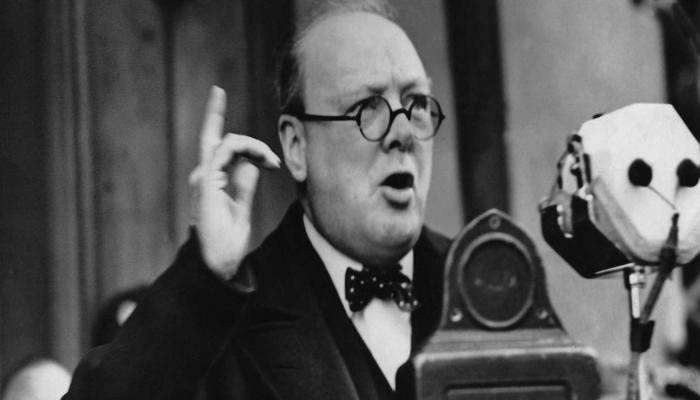JANUARY 4, 2018 BY PAUL BUDLINE

Winston Churchill, the subject of the movie “Darkest Hour,” is considered one of the greatest human beings to live in the 20th century. In a BBC poll, citizens of the UK voted him the greatest Briton of all time.
The plaudits are well deserved, as Churchill is widely credited with rescuing Great Britain from the depths of despair.
In 1940, a Nazi invasion of Britain seemed inevitable and many British politicians wanted to cut a deal with Hitler. Not Churchill. He rose to his feet in the House of Commons and gave one of history’s most stirring speeches. “We shall defend our island,” he vowed, whatever the cost may be … We shall never surrender!”
One month later, the German Luftwaffe began bombing British cities, killing more than 20,000 civilians. But the Brits endured and Hitler eventually abandoned his dream of a massive naval invasion.
That was just one small chapter in the epic life of a truly remarkable man. But there’s this one thing: By today’s standards, Winston Churchill would probably be considered an Islamophobe.
Churchill was in his mid-20s and a British Army officer when he wrote “The River War,” which documented his experiences in Sudan.
“Individual Moslems may show splendid qualities,” he wrote. “But the influence of the religion paralyzes the social development of those who follow it. No stronger retrograde force exists in the world.”
It’s always dicey to criticize an entire religion, but Catholics and evangelical Christians get pounded all day long.
Young Winston also wrote this: “The fact that in Mohammedan law every woman must belong to some man as his absolute property – either as a child, a wife or a concubine – must delay the final extinction of slavery until the faith of Islam has ceased to be a great power among men.”
The words sound inflammatory to our sensitive ears, but in fact, Churchill was laying out a very simple case: Muslims are often wonderful and peaceful and kind people, but the faith itself has a lot of problems.
Among those problems is the fact that in most predominantly Muslim nations, half the population is treated horribly. We all know this, and it can be proven by posing a simple hypothetical: In which Islamic country would you feel comfortable raising your daughter or your gay son?
While the argument about Islam is an interesting one, Churchill’s words raise another question that is especially relevant in our era of widespread statue demolition.
If Winston Churchill were around today and had he written the same thing, would this incredible leader be destroyed by the forces of political correctness? We are pretty sure he wouldn’t be invited to sit down with the ladies of The View. And if he were, Whoopi and Joy would storm out of the studio. It’s actually an amusing image, come to think about it.
It’s a good sign that most of the Churchill statues in Britain have not been defaced. The few that have been damaged have been vandalized by isolated loons with various axes to grind. There is also a powerful statue of Churchill in Washington, and of course a bust in the Oval Office. So he seems to have thus far defied the recent trend of literally knocking heroes off their pedestals.
If anyone is offended by a few words Winston Churchill said about Islam more than 100 years ago, they should remember a few words written much more recently by the historian John Lukacs, who pithily explained what Churchill accomplished in 1940: “Then and there he saved Britain and Europe, and Western civilization.”
As you may know, Winston Churchill’s mother Jennie was born in America. His ties to the United States ran long and deep, which is why one particular honor probably meant more to him than any statue or medal.
In 1963, shortly before Churchill’s death, President Kennedy proclaimed him the very first “honorary citizen of the United States.” It took an act of Congress, but Winston Churchill, who always loved and admired America, was finally an American.
Leave a Reply